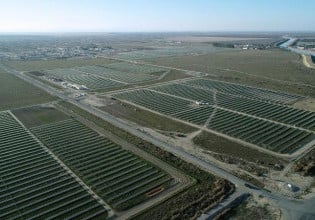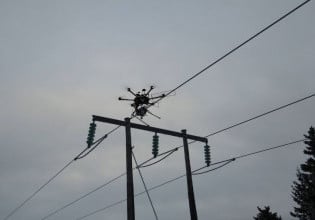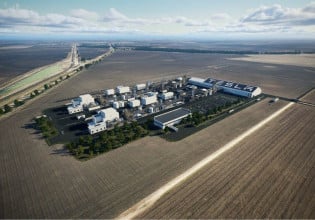Check the Final Program of PCNS Passive Component Networking Symposium September 1013th Romania
This article features European Passive Components Institute (EPCI) final program of the 2nd edition of the PCNS Passive Components Networking Days Symposium.
EPCI European Passive Components Institute is pleased to announce the final program of the 2nd edition of the PCNS Passive Components Networking Days Symposium that will take place 10th-13th September 2019 in Bucharest, Romania, hosted by Electronics, Telecommunication and Information Technology Faculty of Politehnica University of Bucharest.
Program at a Glance
Keynote Presentations:
- Passive Components – Keys to enabling Advanced Future System Designs; Ron Demcko; Technical Sales Group Manager; AVX fellow
- Design Challenges of Capacitors – What about downsizing, robustness and energy density for future applications?; Stephan Menzel; Product Development Manager Capacitors; Würth Elektronik eiSos
- Shortage of Products – Market Mechanisms and How to avoid Fake-Products; Rüdiger Scheel; VP Automotive, Murata Electronics Europe
- Passive Components – Teaching and Learning; Paul Svasta, Emeritus Professor; Politehnica University of Bucharest
HOT TOPIC Panel Discussion:
MLCC Class II DC BIAS & Ageing Capacitance Loss
- Manufacturers and end-users discussion on definition/reference conditions on capacitance loss with DC BIAS on MLCC class II capacitors
- Panelists (Tentative list): Valeo, AVX, Kemet, Murata, Continental
Technical Papers:
1. NEW DEVELOPMENT
1.1. A Disruptive Nano-laminate Polymer Capacitor Technology for Electric Drive Applications; Angelo Yializis; POlyCharge America Inc; United States
1.2. Integrated and discrete capacitors based on carbon nanostructures with capacitance densities in excess of 200 nF/mm2; Sascha Krause; Smoltek AB; Sweden
1.3. Advances in Film Resistor Technology; Stephen Oxley; TT Electronics; United Kingdom
2. TECHNOLOGY & ROADMAPS
2.1. Energy Harvesting is not Fiction anymore; Lorandt Fölkel; Würth Elektronik eiSos; Germany
2.2. Analysis of Multi-Layer Ceramic Capacitors used in Power Distribution Networks; Marcel Manofu; Continental; Romania
2.3. Guidelines How to Downsize MLCCs Efficiently; Yuki Nagoshi; Murata; Germany
2.4. Capacitor Trends and Challenges; M. Barta and T.Zednicek; TTI Germany and EPCI Czech Rep.
3. QUALITY & RELIABILITY
3.1. COTS procurement for space mission; Denis Lacombe; ESA ESTEC; Netherlands
3.2. Most Reliable, Most Efficient and Price Effective Solid Tantalum Capacitors; Yuri Freeman and Ed Jones; Kemet; United States
3.3. Real Environment Aluminium Electrolytic Capacitor LifeTime Evaluation and Modelling; Luca Primavesi; ItelCond and University of Milano; Italy
3.4. Supercapacitor Degradation and Life-time; Vlasta Sedláková; Brno University of Technology; Czech Republic
4. MATERIALS & PROCESSES
4.1. High Bs ferrite material development for high power applications; JC Sun; Power Loss Tester GmbH; Germany
4.2. High efficient new Hybrid magnetic EMI filter design for Low Voltage DC distribution; Wai Keung Mo and Thomas Ebel; Centre for Industrial Electronics, University of Southern Denmark
4.3. Conductive hybrid threads and their applications; Tomas Blecha; University of West Bohemia; Czech Republic
4.4. Tin Whisker or not Whisker; Jean Edmond Le Calvé; Valeo; France
4.5. Stable and reliable tantalum supply chain; Roland Chavasse; T.I.C.; Belgium
5. MEASUREMENT & TEST
5.1. Degradation of Polymer Tantalum Capacitors during High-Temperature Storage; Alexander Teverovsky; NASA/GSFC; United States
5.2. Investigation and Experimental Comparison of Magnetic Core Loss for High-Saturation Ferrite Material; Chang Wang; TU of Denmark; Denmark
5.3. Evaluation of Active Balancing Circuits for Supercapacitors; Ciprian Ionescu; Politehnica University of Bucharest, Romania
Download the final program in pdf here.
About EPCI
European Passive Components Institute’s is a premium source of passive components related information and tools since 2015. It is one of the few resources dedicated purely to passive components “niche” market.
EPCI mission is to provide easy to get, independent and verified passive components information for designers, component engineers, buyers, strategic marketers, FAEs, quality engineers, students and everyone with interest in these components.






